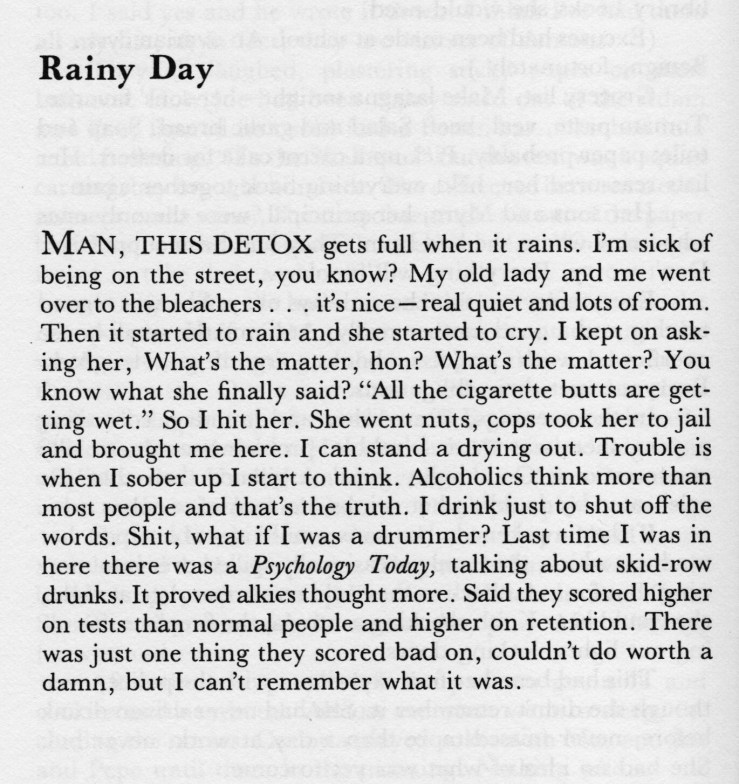One gray November day, Elliot went to Boston for the afternoon. The wet streets seemed cold and lonely. He sensed a broken promise in the city’s elegance and verve. Old hopes tormented him like phantom limbs, but he did not drink. He had joined Alcoholics Anonymous fifteen months before.
Christmas came, childless, a festival of regret. His wife went to Mass and cooked a turkey. Sober, Elliot walked in the woods.
In January, blizzards swept down from the Arctic until the weather became too cold for snow. The Shawmut Valley grew quiet and crystalline. In the white silences, Elliot could hear the boards of his house contract and feel a shrinking in his bones. Each dusk, starveling deer came out of the wooded swamp behind the house to graze his orchard for whatever raccoons had uncovered and left behind. At night he lay beside his sleeping wife listening to the baying of dog packs running them down in the deep moon-shadowed snow.
Day in, day out, he was sober. At times it was almost stimulating. But he could not shake off the sensations he had felt in Boston. In his mind’s eye he could see dead leaves rattling along brick gutters and savor that day’s desperation. The brief outing had undermined him.
Sober, however, he remained, until the day a man named Blankenship came into his office at the state hospital for counselling. Blankenship had red hair, a brutal face, and a sneaking manner. He was a sponger and petty thief whom Elliot had seen a number of times before.
“I been having this dream,” Blankenship announced loudly. His voice was not pleasant. His skin was unwholesome. Every time he got arrested the court sent him to the psychiatrists and the psychiatrists, who spoke little English, sent him to Elliot. Continue reading ““Helping,” a short story by Robert Stone”

